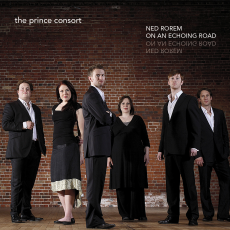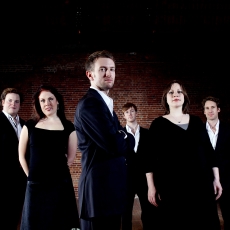Prince Consort - Oxford Lieder Festival - The Times
German-language lieder take the lead position in the Oxford Lieder festival. But praise to the organisers and the feisty young voices of the Prince Consort for not forgetting Ned Rorem, the American composer who has devoted much of his career to the lyric art. By the age of 40 he had written 400 songs, fresh, limpid, at peace with tonality, in some ways closer to French or English traditions than the American vernacular. Now, at 86, the total is past 600. In 1997 he created a pinnacle with his concert-long Evidence of Things Not Seen, 36 settings for vocal quartet and piano, delivered in three ruminative sections, Beginnings, Middles and Ends. The Prince Consort gave the European premiere.
Though not in the best location. The Holywell Music Room, in business since 1742, has history on its side, but on Sunday the small space and resonant acoustic fused dangerously with four gifted vocalists - Anna Leese, Jennifer Johnston, Nicholas Mulroy, Jacques Imbrailo - singing their heads off. Without the programme's song texts, numerous words would have stayed a mystery, mislaid in the decibels' blare.
Even so, this autumnal retrospective of Rorem's art worked much magic. The texts, some from prose, reflected elements in his diverse make-up: Quaker upbringing (William Penn), male homosexual love (Auden, Whitman, Paul Goodman), French colouring and perfume (Baudelaire, Colette). Oddly, some of the gayest texts brought the plainest musical responses. But the lyric flow was usually guaranteed when sopranos Leese and Johnston intertwined, as in Colette's On an Echoing Road, gently supported by rippling arch patterns from Alisdair Hogarth's supportive piano.
Rorem's best effects stemmed from thwarted expectations: As I Walked Out One Evening, say, with music teasingly contradicting Auden's metre, or the wickedly lilting Comment on War (Langston Hughes). The simplest effects came from the Quaker hymns and thoughts that closed each section and led us toward the grave and death - the final evidence of things not seen. A loud and frustrating concert, but still moving and necessary.

